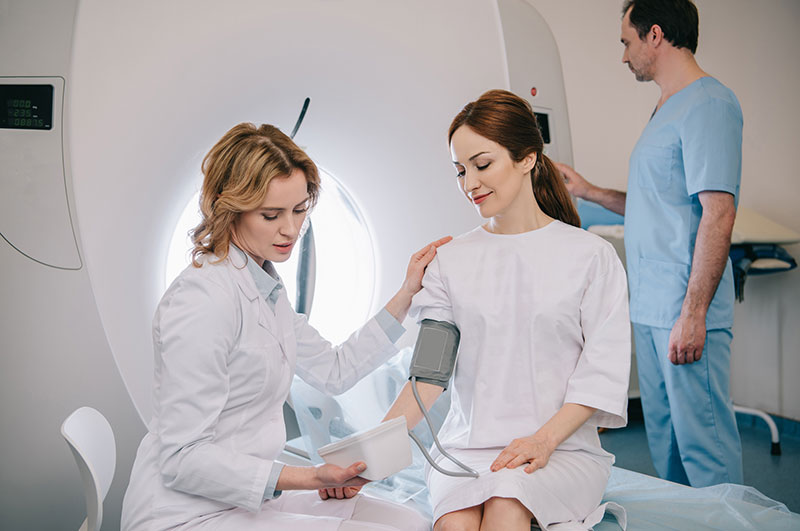
CT Calcium Scoring
A computed tomography (CT) Heart Score is a noninvasive test that can identify heart disease in its early stages. Using our CT scanner, we are able to take rapid cross-sectional images of your heart. Those images can show calcium build-up in your arteries, a potential sign of coronary artery disease. These images can help you and your physician determine whether any lifestyle changes are needed to reduce or avoid the risks of heart disease.
Is This Test for You?
SYNC Diagnostics values the appropriate use of medical testing. If you are a male age 35-70 or a female age 40-70 with any of the following risk factors, the CT Heart Score may provide valuable information to your physician about your heart health.
Heart disease risk factors:
- Diabetes
- Family history of heart disease
- High blood pressure
- High cholesterol
- Overweight
- Smoking
Tests Included
- Sample Type: Blood & Urine
- HSA/FSA: Accepted
- Collection Method: In person at a Labcorp location
- Results: 1 day from when your sample arrives at our lab
Preparation: Fast for 12 hours (no food or drink, except water) before sample collection. If you’re taking a supplement containing biotin (also called vitamin B7 or B8, vitamin H, or coenzyme R), commonly found in products promoting nail, skin and hair health, it is recommended that you wait at least 72 hours from your last dose before sample collection.
When you come in for your CT Heart Score, you will be asked to put on a gown and will have four EKG sensors placed on your chest. You will then lie on the bed of the CT scanner.
Though the scanning itself causes no pain, there may be some discomfort from having to remain still for several minutes. If you have a hard time staying still, are claustrophobic or have chronic pain, you may find a CT exam to be stressful. Under the direction of your physician, you may bring your prescribed sedative to help you tolerate the CT scanning procedure.
When you enter the CT scanner, special lights may be used to ensure that you are properly positioned. With modern CT scanners, you will hear only slight buzzing, clicking and whirring sounds as the CT scanner revolves around you during the imaging process. You will be alone in the exam room during the CT scan. However, the technologist will be able to see, hear and speak with you at all times.
- After the examination, a radiologic technologist will examine the images and transfer them to the radiologist for interpretation. The radiologist will then evaluate the images and create a report of the findings to your medical provider.
- Results are typically available within 2 to 4 hours..
- It is recommended that you schedule a follow-up appointment with your physician to discuss the results.